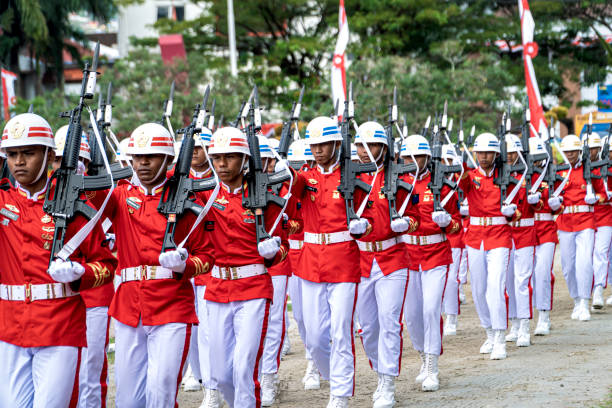Let’s face it—life’s a whirlwind. Between rushing deadlines, never-ending to-do lists, and digital overload, it’s easy to forget one fundamental truth: humans are wired to help each other. That’s where korps sukarela steps in—not just as a band of volunteers, but as a living, breathing force of compassion that stitches society back together when everything seems to be falling apart.
The phrase korps sukarela, which translates roughly to “volunteer corps,” may sound official and buttoned-up. But dig a little deeper, and you’ll find a colorful mosaic of heart, hustle, and humanity. These people don’t wear capes—they wear purpose. They don’t get paychecks—they get something richer: the satisfaction of making a difference.
So, buckle up, because we’re about to dive deep into a world where service isn’t just something you do—it’s something you live.
What Exactly Is Korps Sukarela?
A Quick Snapshot
In its simplest form, korps sukarela refers to a voluntary organization made up of everyday folks who come together to address communal needs. Whether it’s responding to natural disasters, providing food during crises, mentoring kids, or cleaning up neighborhoods, these groups show up, roll up their sleeves, and get it done.
They’re found worldwide—though the term is more commonly used in regions influenced by Malay or Indonesian cultures—but the mission is universal: service above self.
Common Characteristics:
-
Non-profit oriented: No personal profit or salary involved.
-
Community-driven: Locals helping locals.
-
Inclusive: Open to anyone willing to contribute.
-
Flexible: Ranges from informal groups to organized associations.
The Soul of Volunteering: Why People Join Korps Sukarela
It’s Not Just About “Being Nice”
Ask any volunteer why they joined, and you’ll likely get answers that dig deeper than a warm fuzzy feeling. Being part of a korps sukarela transforms people. It builds purpose, strengthens social bonds, and even rewires the brain for empathy and resilience.
Top Motivations People Mention:
-
A desire to give back – “My community helped me. Now it’s my turn.”
-
Personal growth – “I learned leadership, communication, and how to make tough calls.”
-
Social connection – “I met my best friend while distributing aid packages.”
-
Spiritual fulfillment – “Helping others feels like a divine calling.”
-
Career stepping-stone – “It gave me experience I couldn’t get elsewhere.”
Volunteering, especially in a korps sukarela, can be a life-changer, not just for the community—but for the volunteer too.
Behind the Curtain: How Korps Sukarela Actually Works
No Magic Wand—Just Hard Work
You’d be surprised how much coordination goes on behind the scenes. Organizing a volunteer corps isn’t just about rounding up do-gooders and pointing them at a problem. There’s strategy, planning, logistics—and often a fair share of duct tape and prayer.
How They Operate:
-
Leadership Structure: There’s often a core team that organizes roles, tasks, and communication.
-
Training & Orientation: Volunteers might undergo basic safety, health, or disaster-response training.
-
Task Allocation: Based on interest, skill, or urgency.
-
Monitoring & Feedback: To keep things effective and adaptive.
Even in the most chaotic scenarios—say, post-flood rescue operations—a solid korps sukarela doesn’t miss a beat.
Real-Life Tales from Korps Sukarela on the Frontlines
When Ordinary People Do Extraordinary Things
Sometimes, the best way to understand the power of korps sukarela is through stories—raw, real, and riveting.
📍 Case 1: The Fire in Bukit Indah
When an electrical fire ripped through a housing block in Bukit Indah, emergency services were stretched thin. But the local korps sukarela didn’t wait for a call—they ran toward the fire.
-
Volunteers evacuated 37 families.
-
They set up a temporary shelter in a school gym.
-
Within 48 hours, they’d organized food, medicine, and clothing.
Not bad for a bunch of “amateurs,” right?
📍 Case 2: Pandemic-Era Food Angels
During the COVID-19 lockdowns, many families lost income overnight. In Selangor, a local korps sukarela went into overdrive.
-
They distributed over 20,000 food parcels in just 2 months.
-
They recruited local hawkers and farmers to ensure sustainability.
-
And get this: all of it was crowd-funded and transparent.
That’s grit and grace in action.
The Impact of Korps Sukarela on Society
More Than Just Band-Aid Solutions
Think of a korps sukarela as both the thermometer and the bandage of society—they know where the pain is and offer relief. But their impact doesn’t stop at relief; it extends into transformation.
Here’s How They Change the Game:
-
Disaster resilience increases—People are trained and ready.
-
Civic engagement rises—More citizens get involved in governance.
-
Local economies benefit—Volunteering often supports small businesses.
-
Mental health improves—For both givers and receivers.
The ripple effect? Massive.
Becoming Part of a Korps Sukarela: What You Need to Know
So, You’re Ready to Dive In?
First off—yes, you absolutely can join one. And no, you don’t need to be a superhero or have a specific skill set. If you’ve got a heart and hands, you’re halfway there.
What You Might Need:
-
Willingness to learn – You may be trained in basic first aid or logistics.
-
Time commitment – Even a few hours a month can mean the world.
-
Team spirit – This isn’t a solo gig.
-
A good attitude – You’re gonna get sweaty. Maybe even muddy.
Places to Start Looking:
-
Local community centers
-
NGOs or charity organizations
-
Online directories (like VolunteerMatch or Idealist)
-
Social media volunteer groups
And hey, if you can’t find one, start one! That’s how most korps sukarela groups begin anyway—with one person saying, “Why not me?”
FAQs About Korps Sukarela
❓ Is there a minimum age to join a korps sukarela?
Usually, it depends on the organization’s rules. Some accept teenagers (with permission), while others focus on adult volunteers.
❓ Do I need special skills to join?
Not at all! While skills like first aid, counseling, or logistics are a plus, passion and commitment are the main ingredients.
❓ Can I volunteer remotely?
Yes! From fundraising to social media management, there are plenty of ways to help from home.
❓ Is there any certification involved?
Some organizations offer certificates of participation, especially if training is involved. Great for your résumé!
Why the World Needs More Korps Sukarela
The Real Heroes Don’t Seek Headlines
In a world that’s increasingly fragmented, uncertain, and—let’s be real—exhausting, korps sukarela represent the hope we’re all desperate for. They show up when sirens stop, when the media moves on, and when governments stall.
These groups don’t ask, “What’s in it for me?”
Instead, they ask, “What can I do for you?”
They prove that empathy isn’t extinct—it’s just underfunded and undervalued. But maybe, just maybe, if more people saw the quiet strength of these corps, they’d be inspired to act too.
Conclusion: The Fire Within
You don’t need to have all the answers. You don’t need to be rich or influential. What you need is the fire within—a flicker of kindness, a flick of initiative. That’s what fuels every korps sukarela out there.
These aren’t just groups. They’re movements. They remind us that beneath the noise and neon, human decency still pulses. Still breathes. Still burns bright.
So, next time you wonder if one person can make a difference—remember them.
Better yet? Become one of them.
Ready to get involved with a korps sukarela?
Go on—raise your hand, step up, and dive into a world where your small act could be someone else’s lifeline.
Because heroes don’t always wear uniforms.
Sometimes, they wear hope.







